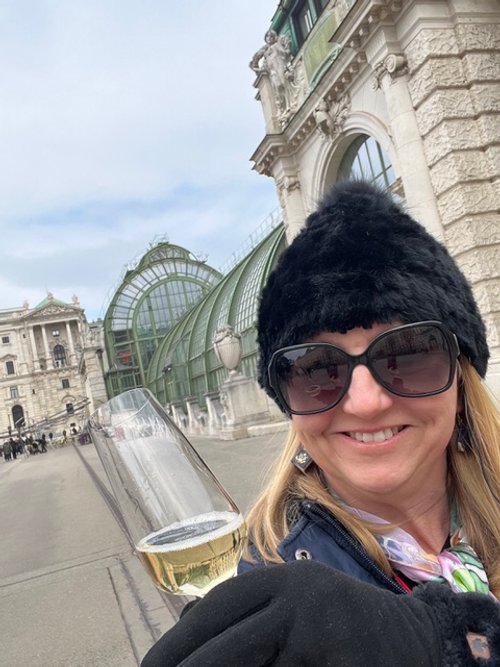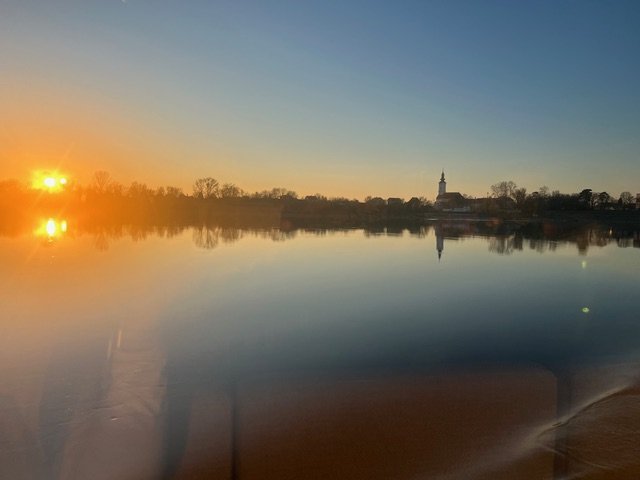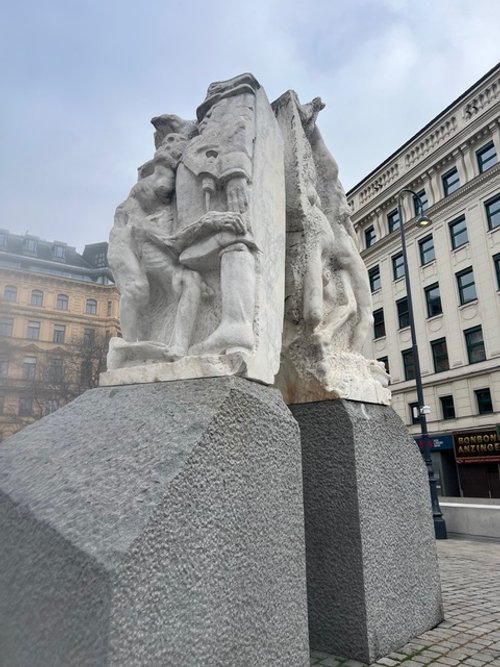Travel
Guest Writer: Shannon Seibert
Post Europe Trip March 2025, final thoughts.
"Travel is fatal to prejudice, bigotry, and narrow-mindedness, and many of our people need it sorely on these accounts. Broad, wholesome, charitable views of men and things cannot be acquired by vegetating in one little corner of the earth all one's lifetime." Mark Twain
Shannon in Vienna
Travel is, in my opinion, the most excellent classroom where history comes alive, where art, architecture, food, and culture create new spaces in our minds, and most importantly, where we connect with people outside our little corner of the earth.
I learn, grow, and expand my worldview. My perspectives are challenged. My circle of influence is broadened. It makes me more humble, more grateful, and more curious.
I remember when Americans, as a whole, were proud that we were a melting pot of different people, cultures, religions, and customs. America wasn't just a dream but an IDEA, a way of thinking. I think we have forgotten and lost being proud that we are a melting pot.
Memorial in Vukovar, Croatia
Historically, many wars, hate, and loss of life are about rejecting melting pots.
All nations, peoples, governments, and cultures have flaws and flawed histories. They all have their challenges, corruption, and failures. But what is the beauty they offer?
What are the lessons they teach?
. Orthodox Church in Belgrade, Serbia
What can I bring home and improve my own "backyard"?
Here are a few things I brought home this time; some are repeats of previous trips.
1. Slow down. Your work will still be there; no one is coming to take it away.
Sunset on the Danube
2. Sit with friends over a cup of coffee or a glass of wine, OFTEN, and for extended amounts of time.
3. Offer signs in multiple languages. In Serbia, signs were offered in FIVE languages to make things more accessible to more people.
4. Church doors had many, many languages. One church had eight languages inscribed on its main doors! Churches offered services in two different languages every service.
5. City centers are pedestrian, and all shopping is located in one area. Families and friends could gather here; kids ride bikes, and babies learn to walk. City centers are where life happens together.
6. FREE public transportation
7. Every city had a memorial/remembrance of the holocaust (probably the darkest stain on European history). They remember not to be ashamed, not woke, not DEI. They just don't want to repeat history! They acknowledge it and REMEMBER so they don't repeat it.
8. There are anti-fascism monuments in every town.
Monument against War & Fascism in Vienna.
"Gate of Violence": A large chunk of granite with carvings representing victims of the war, including chained laborers, gas masks, and a woman giving birth (symbolizing the rebirth of Austria).
9. Focus on doing ONE thing really well. Multi-tasking is overrated and lessens the quality overall. Whether it's sausages, pastries, oils, wines, or beer, just do that ONE thing really, really well.
10. In general, people are people. They want to live in peace, have a secure existence, provide safety and opportunity for their children, worship how they choose, have a trustworthy and helpful government, and live FREELY.
Cookies at market in Budapest, Hungary
One final story is from Serbia, a place with a corrupt government (per our guide), where votes are bought, coerced, and manipulated. Only 30% support the current administration, but they win elections because of the corruption and false propaganda that is rampant—a fragile "democracy," no doubt.
But Serbia is also a place where 300,000 Russians have resettled and 100,000 Ukrainians have fled since the start of the Ukraine war. We know why the Ukrainians are there, seeking safety. But why so many Russians? Primarily because they have sons who must serve in the Russian military. The parents don't want their sons to die. They are there to save their children's lives; all 400,000 just want to save their children's lives. I think all parents can empathize with that.
Shannon Seibert Shannon@smallworldbigfun.com
Joanna Seibert joannaseibert.com








